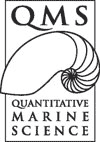
What did you like best about the program?
I enjoyed coursework component of this program. Unlike other PhD programs in Australia, which are typically research-intensive to my knowledge, the QMS program uniquely combines academic learning with research. This means that you not only get to be an expert in your field of research but you also gain valuable understanding of the whole spectrum of marine science. This broad knowledge base enabled me to integrate my core research field with other aspects of marine science.
How has it helped you in your current career?
The QMS program was intrumental in helping me develop interdisciplinary communication skills and a holistic understanding of marine science. These skills have proven invaluable in my current role, where integrating various aspects of marine science is crucial.
What was your favourite unit and why?
While it's challenging to single out on unit, given that all units are carefully designed to cover a broad spectrum of quantitative marine science. I particularly enjoyed learning about Ocean Biogeochemistry, Fishery Science and Ecosystem part as my background is in Physical oceanography. As these units, allowed me to connect my Physical Oceangraphy research to Biogeochemistry and later to Fishery science.
What is your current role?
Currently, I am working as a Research Associate at the ARC centre of Excellence for Climate Extremes at the University of Tasmania. This role allows me to apply the knowledge and skills I gained from the QMS program to my research and teaching work.